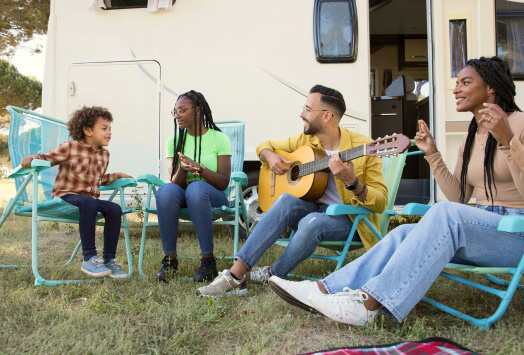Summer is an exciting time for children. The weather is nice, school is out, and children have the opportunity to learn and do what they want. Summer camp is a great way to encourage this independence and growth.
For young children, summer day camp can be the first time that they spend a full day away from their parents. For older children, day camp or sleepaway camp is a chance for them to make new friends, explore new passions, and practice taking care of themselves. Virtual summer camp is typically more specialized, so children will be able to focus on their interests and develop their skills.
These are just some of the benefits of summer camp, which is why more than 14 million children and adults participate in camp each year, according to the American Camp Association. If you are looking for great online and in-person summer camps, Sawyer makes summer planning simple! You can research camps, read reviews, and book directly on Sawyer.
Benefits of summer camp
Summer camp can be expensive and signing your child up is a big decision. If you are on the fence, then knowing the benefits of summer camp can help you feel more comfortable with making a decision.
Increased independence
Camp promotes independence because children often get to make their own choices, figure out what to do with their free time, and spend more time on their own with friends. Without a teacher or parent nearby, children get an opportunity to develop their sense of self and grow into their own person.
Developed skills
A lot of camps are specialized by topic, which gives children the opportunity to focus on a skill they are passionate about and grow their abilities in that topic. Kids art camps and STEM and STEAM camps are especially popular these days. Children also learn social skills, like how to make friends, handle conflict, and work as a team.
Emotional growth
Young children attending day camp for the first time and older children going away from home for sleepaway camp will see incredible emotional growth. Not only will they learn how to regulate their own emotions, but also they will learn that they can solve problems on their own. Campers have the opportunity to try new things that take them out of their comfort zones.
Stronger connection to nature and less screen time
Day camps and sleepaway camps allow children to connect with nature and spend time away from their screens. As they explore their surroundings, children get to interact with bugs, plants, flowers, and more natural elements than they likely see in their backyard or local park. As they learn about the world around them, they develop connections that will lead them to healthy and positive habits like taking daily walks, recycling, and taking care of the environment.
More confidence
Increased independence, better emotional regulation, stronger social skills, and a more full sense of self all lead to increased confidence and self-esteem for your child. All of these benefits of summer camp help lead children to becoming better versions of themselves. They then take this growth and bring it with them to the next school year so that they are more comfortable in that setting, too.

Choosing a summer camp: Types of summer camp
Now that you know the benefits of summer camp, the next step towards making a decision for your child is choosing a summer camp. To do this, it is best to go through the types of summer camps available so that you can figure out what is best for your child. Make sure you take their interests into consideration as well. Choosing the right summer camp for your child will help them make friends and enjoy their summer!
Virtual summer camp
If you have concerns about summer camp and COVID-19 or if your child just does better with an online experience, virtual summer camp is a great place to start. These classes, activities, workshops, and events are all done from the comfort of your home. Many virtual summer camps are focused on specific subjects like STEM, music, art, or language and class sizes are typically small. Your child will still gain many of the benefits of summer camp and get the opportunity to make new friends.
Day camp
Day camp is exactly what it sounds like: children go to camp during the day and then return home each evening. Day camps can have campuses of their own or take place at community centers, playgrounds, parks, or a variety of these locations. They often have a mix of indoor and outdoor activities and can be topic-focused or more general. Children get the opportunity to spend some time away from their parents, make new friends, and learn new skills.
Sleepaway camp
Sleepaway camp, also called residential camp, gives children the opportunity to spend some time away from home. Sessions usually last between one week and eight weeks and children participate in structured activities as well as enjoy flexible time to socialize and relax. Sleepaway camps are often located on campuses in nature and children sleep in cabins or potentially tents. Children learn how to be independent, confident, and comfortable with themselves.
Learn more about the different summer camp types in our guide.

Should I send my child to camp?
Deciding whether or not to send your child to camp can be a difficult decision. Separation anxiety is a real concern for both parents and children and uncertainty about COVID-19 remains.
However, there are so many benefits of summer camp for children of all ages. Virtual, day, and sleepaway camps provide opportunities for your child to learn, grow, and develop all while giving you some time back during the summer. Ultimately, making this choice is up to how parents and children feel. Don’t forget to bring your child into the conversation so their opinions are heard as well.
If you are ready to sign your child up for summer camp this year, Sawyer is the place for you. We have hundreds of educators offering all types of camps to make this the best summer ever.
















